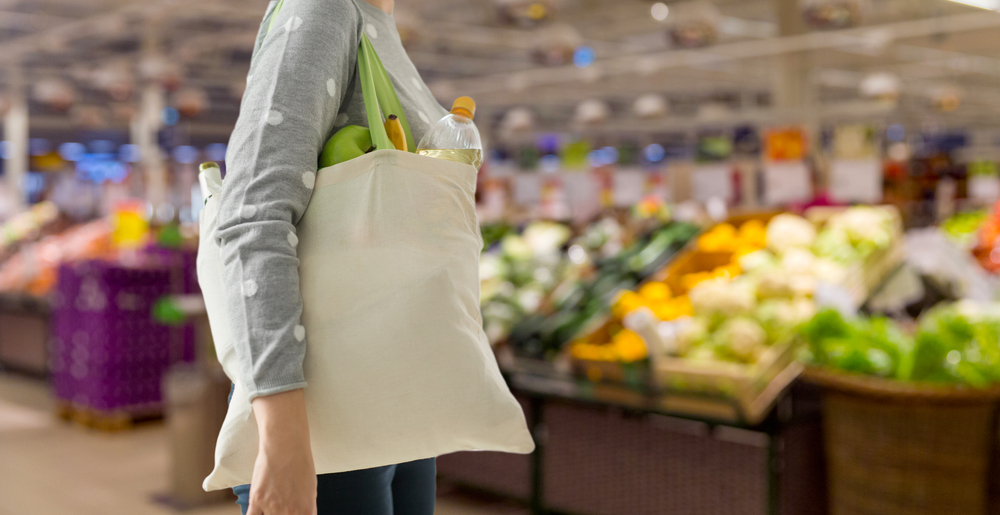The well-stocked grocery store is a staple of modern life, with its uniform, colorful rows of canned, packaged, and fresh foods that stretch the long aisles. And while customers enjoy the abundance of grocery store offerings, they are also starting to pay more attention to the extraordinary amounts of waste that consumption generates. As shoppers increasingly demand sustainable solutions, the grocery industry has responded by enacting more sustainable practices that reduce its environmental impact. By ensuring sustainable practices across their supply chains, grocers can build bridges to a generation of eco-conscious shoppers.
Why Sustainability in the Grocery Industry Matters
Each year, Collins Dictionary recognizes a “Word of the Year”—a word that captured the popular imagination and became a vital part of the lexicon. In a sense, the “Word of the Year” offers an annual barometer that provides insight into a culture’s emerging ideas and concerns.
In 2018, the Word of the Year was “single-use.” It referred to items that were used only once before they were discarded. Single-use items often exist in our lives for just a few minutes before they’ve fulfilled their purpose; however, single-use items can persist in landfills, rivers, streams, and oceans for many years. Grocery stores have become an important intersection in the “single-use” discussion.
Consider plastic bags. An estimated 160,000 plastic bags are used in grocery stores every second around the world. That’s over a trillion new plastic bags a year—bags that require many years to break down and can harm wildlife and the environment in the process.
The American grocery industry has responded to municipal and state government plastic bag policies with announcements to phase out single-use bags and introduce reusable solutions. Shoppers across the country have responded positively, and the use of single-use plastic bags in grocery stores has significantly decreased.
The campaign to minimize single-use bags also highlights the growing importance of sustainability in the grocery industry. The following sections explore some of the reasons grocers are adopting more sustainable standards.
Stay Ahead of Sustainability Regulations
In 2014, California became the first state to ban single-use bags. They are now banned in eight states and many major cities that include New York, Chicago, and Boston. Grocers in these areas must conform to the ban to avoid fines and penalties.
Regulation of single-use plastic bags represents a paradigm shift in the industry. As more states and major cities impose regulations that enforce sustainability, grocers are acting preemptively to ensure they avoid situations where they would need to scramble to enact greener solutions.
Meet Customer Expectations for Greener Decisions
A 2020 poll by Neilsen found that 81 percent of consumers sought environmentally-friendly companies that practiced sustainability. Over 70 percent of respondents said that a company’s environmental standards impacted their buying decisions.
This isn’t the first time that grocery stores have evolved to meet new cultural standards, though. For instance, for the last few decades, grocers have responded to the ever-growing demand for organic products. Nowadays, though, consumer demand for sustainability extends beyond the aisles to business practices that can accomplish broader sustainability goals like carbon footprint reductions. Forward-thinking grocery stores are now meeting customer demand by examining their sustainability practices across the supply chain.
Customer-Centered Sustainability Practices
Grocers have discovered several ways to connect with sustainability-minded customers who want to reduce their carbon footprint, as well as their contributions to the waste stream. In doing so, they have also built strong relationships with a growing number of millennials and issue-conscious customers whose goal is to support companies that share their values. Listed below are several practices that have helped grocers develop strong bonds with their issue-oriented customers:
- Eliminate single-use bags.
- Reduce food waste by partnering with local charities, shelters, soup kitchens, and pantries to donate food that would otherwise be tossed.
- Reduce food waste by offering last-minute sales for customers. For instance, Metro, a Montreal-based store, offers 30 percent off items near their expiration dates. Customers use a company-developed app to locate in-store deals.
- Employ more accurate “sell by” and “use by” dates. For years, producers often listed the earliest possible date, but this practice led to enormous amounts of unnecessary waste.
- Strengthen brand identity by encouraging vendors to use recycled materials.
How Sustainability Benefits the Bottom Line
 Sustainable Options Lower the Cost of Business
Sustainable Options Lower the Cost of Business
Since grocers have considerable leverage over their supply chain, they have pressured vendors to implement more sustainable practices. Such practices include switching from wood pallets to plastic shipping platforms that can help build a low-carbon supply chain while lowering the incidence of damaged products. When vendors switch to plastic pallets, retailers reduce product damage expense by as much as $0.42 per pallet load. In addition to lowering their total cost of business (TCOB), these kinds of supply chain sustainability practices help grocers cultivate and strengthen relationships with a growing segment of eco-conscious shoppers.
iGPS pallets help grocers reduce expenses from damaged products while strengthening supply chain efficiency and sustainability. To learn more about how iGPS pallets can strengthen your brand identity as an eco-conscious grocer, give our team a call at 1-800-884-0225, email a specialist at switch@igps.net, or visit our contact page.



